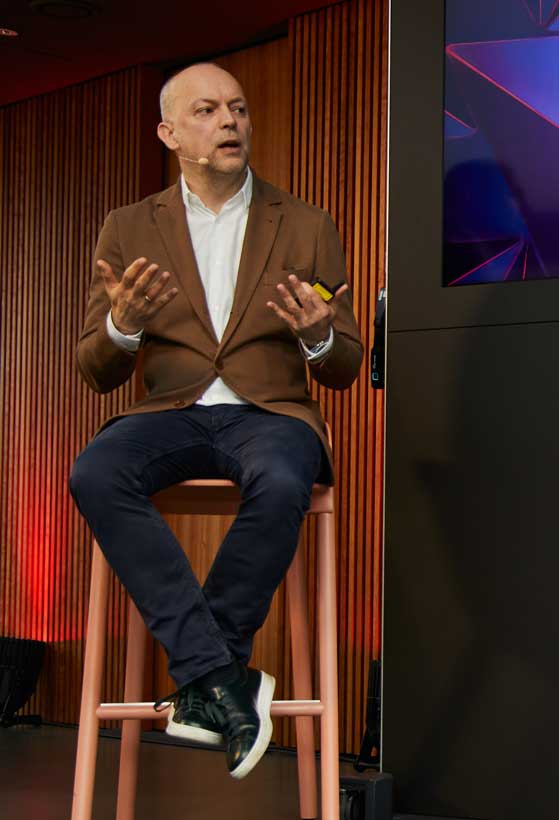If the people holding corporate responsibility in their hands stop developing and learning, the companies they manage will find themselves in enormous difficulty, warns Stephan Balzer, founder and CEO of Red Onion and Boma.
Mention “learning,” and the first picture that comes to mind is of kids and teens at school, perhaps taking in snapshots of young adult trainees and college students as well. Executives rarely figure in these mental associations––and that is a fatal mistake, warns Stephan Balzer, founder and CEO of Red Onion and Boma. His battle cry is, “We have to send executives back to school!”

The world is constantly changing, not slowly and gradually but at breakneck pace, with new developments catapulted into the spotlight daily or even hourly. The speed of change becomes all too clear when Balzer runs through a few key concepts: “AI, robotics, 3D printing, biotech.” Not forgetting globalization, value shift, sustainability, and environment; and what about digital transformation? These concepts alone are clear indications of the urgency Balzer sees when he says “New challenges need a new mindset.”
These and more are all areas which executives need to confront and address, both today and in the future. Or rather, should already have confronted and addressed long ago. Almost 50 percent of German executives admit to lagging significantly behind when it comes to digitization––a subject that first rose to importance around 30 years ago. In Balzer’s view the problem is a cultural one; he sees a lack of appetite for making general changes. Part of the problem in his eyes is that we are currently in a transitional period; many executives still holding the reins of power today gained their qualifications and training in the days of low-tech, or even no-tech. “And then when I look at China, it gives me the shivers,” says Balzer.
To instigate change, Balzer has defined a new-generation executive: the Leader. Leaders have a different mindset from “normal managers,” whose energies are all too often directed solely at “me first” and whose own career is more important than the wellbeing of the company; their horizon only extends as far as their contract. Leaders, on the other hand, have other ideas. They are familiar with the importance of recognition, respect, and work/life balance. They know that there is more at stake than grasping for short-term profit. They are as comfortable with ideas like empathy, resilience, and passion as they are with values-based action and integrity.
Stephan Balzer is all too aware that 70 percent of all transformation projects fail, and proposes seven steps to ensure they succeed. Balzer insists it is vital to instill a sense of urgency; form powerful guiding coalitions; create a vision and a strategy; communicate this vision; actively remove obstacles even if it means overcoming internal dissent; clearly visualize short-term wins; and, finally, consolidate changes and produce more change.
Digitization is not the only factor progressing by leaps and bounds; consumers, too, are growing ever more aware and more discerning. “They are becoming far quicker to let us know if something goes wrong; they question more, they take a critical view of capitalist models,” says Balzer.
“I imagine we’ll see some pretty spectacular bankruptcies unless we show willingness to learn.” If Balzer had his own company, he avows he would spend far more time on seeking out the best managers. That also involves “willingness to fire people.” And even when he says, “We need new people,” his intent is not necessarily to kick-start a generation war. “I meet plenty of people aged 60 or 70 with a fresh mindset.”